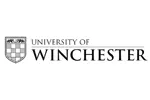About Film Studies, MA - at University of Winchester
Film Studies at Winchester considers film in its specificity and as a complex totality. It explores various critical and theoretical positions that have sought to ‘explain’ film and how film has been situated socially, culturally and politically.
Entry requirements: Normally a first or second class Honours degree in a related subject or professional experience in the area of study
If English is not your first language: IELTS 6.5 (including 6.5 in academic writing) or a TOEFL score of 575 (paper-based) or 232 (computer-based) or equivalent
Application process: UKPASS (full-time applicants only) or Direct Entry Application Form (part-time applicants only)
Programme ContentThe programme is open to graduates who have previously studied film and to those from other cognate disciplines. Most importantly, applicants need to have an interest in and enthusiasm for film and a willingness to engage academically. Students can manage a transition to PhD study via the programme and we welcome research proposals.
Implicit to the programme is an embrace of the diversity of film as an aesthetic, material and (predominantly) commercial object, of the diverse perspectives available to the study of film and of how both have been developed, whether in terms of causality, difference, mutual generation, opposition and/or contestation.
Throughout the programme, study correlates filmic, theoretical and critical particularity with broader cultural, historical and institutional patterns and changes, with individual modules providing a variety of contrastingly privileged concerns and emphases.
The programme curriculum covers areas including film history; changes in film form and style, whether within specific cinematic institutions (for example, Hollywood or the avant-garde) or across them; different production practices and the differential development and use of new technologies; issues of genre, nation, identity and authorship; and the relation of film to its wider material context, be the focus cultural, sub-cultural, political, regulatory or epistemological.
ModulesStudents study nine modules: an introductory module, Postgraduate Seminar, Research Methods, two further taught modules plus four independent study modules.
Modules include: MA Film: Theory and Criticism is an introductory module that provides the critical and theoretical foundation necessary for the postgraduate study of film. Concepts and methodologies are applied to a selected series of mainstream films.
Postgraduate Seminar draws and elaborates upon approaches and issues relating to the programme and is designed to be significantly student-led.
Research Methods develops the research skills required for higher level academic work.
Independent Study modules lead to the completion of the dissertation.
Students choose four taught modules from the following:
Art Cinema/Avant-garde Cinema centres on aesthetic and formal concerns, and traces distinctions between non-mainstream/experimental and mainstream forms through cinema history
Cultures of Third Cinema revisits the seminal ideas of ‘Third Cinema’ and interrogates the specific experiences of cinema culture within ‘Third World’ countries and global communities
Fairytale and Gothic Horror explores fairytale and gothic horror traditions in a broad variety of cultural forms, and draws on a range of methodologies, including postcolonial criticism, feminist theory and psychoanalysis
Fiction and Film considers literary and film fictions as examples of contemporary culture, and focuses on cultural tendencies that cross between them, with a central concern being representation of identities across different formal conventions and genres
Genre and National Cinema explores competing generic discourses to question how far genre is a trans-historical and trans-cultural phenomenon and how far its manifestations are determined by specific national cinemas and cultures
New Technologies and Culture examines the theorisation of and popular knowledges associated with new technologies in relation to a variety of issues and materials
Politics and Post-classical Hollywood focuses variously on individual films, different genres and contrasting phases of production to examine how post-classical Hollywood cinema has mediated shifts within American politics from the mid-1950s to the beginning of the new millennium
Scorsese and Schrader considers the work of Martin Scorsese and Paul Schrader as individual filmmakers and in collaboration, as well as in relation to broader developments within film and film culture within the USA since the late 1960s
Space and Place: A Landscape of British Cinema examines how landscape has been used within British cinema as both a representation of the nation and a setting for the nation to be defined against, and analyses how space and place function in relation to class, ethnicity, gender, heritage and sexuality
Stars and European Cinema focuses on present methodologies that shape the analysis of stars, and considers the extent to which stars and stardom within European cinema function differently than within Hollywood cinema
AssessmentThe standard assessment for each module is a seminar presentation and a 4,000 word essay. Assessment for the introductory module comprises of a seminar presentation, a 1,500 word critical exercise (30 per cent) and a 2,500 word essay (70 per cent). Assessment for Research Methods involves a draft dissertation proposal. There are no examinations.
DissertationWith full tutorial support, students complete a dissertation of 15,000-20,000 words. A substantial piece of independent research, the dissertation must be on a topic within film studies, but it does not have to focus on taught areas.
CareersThe programme is specifically of benefit to those seeking to pursue a career in further or higher education and to those involved in arts/media/cultural work. The programme’s development of critical, research and writing skills will, however, be of benefit to many other areas of endeavour.


